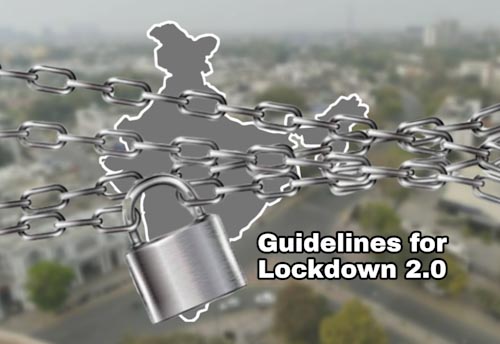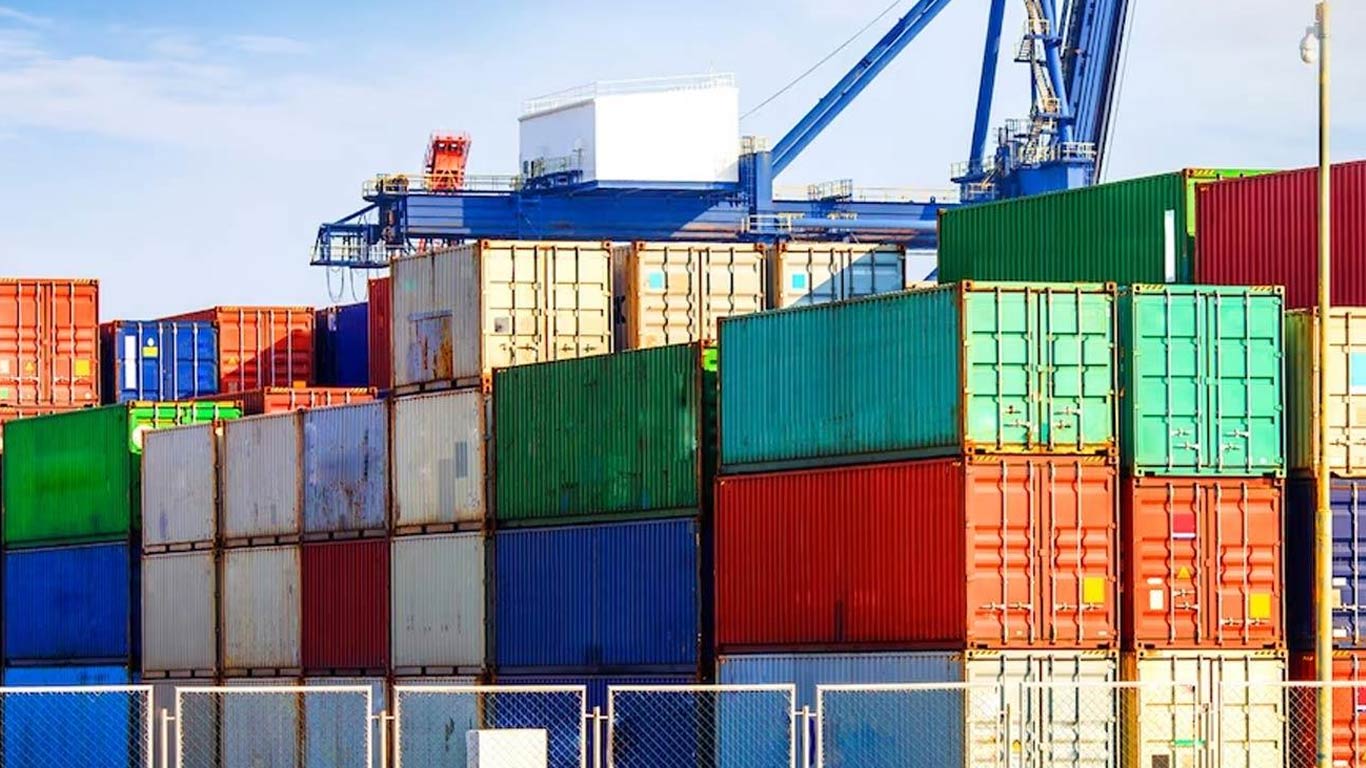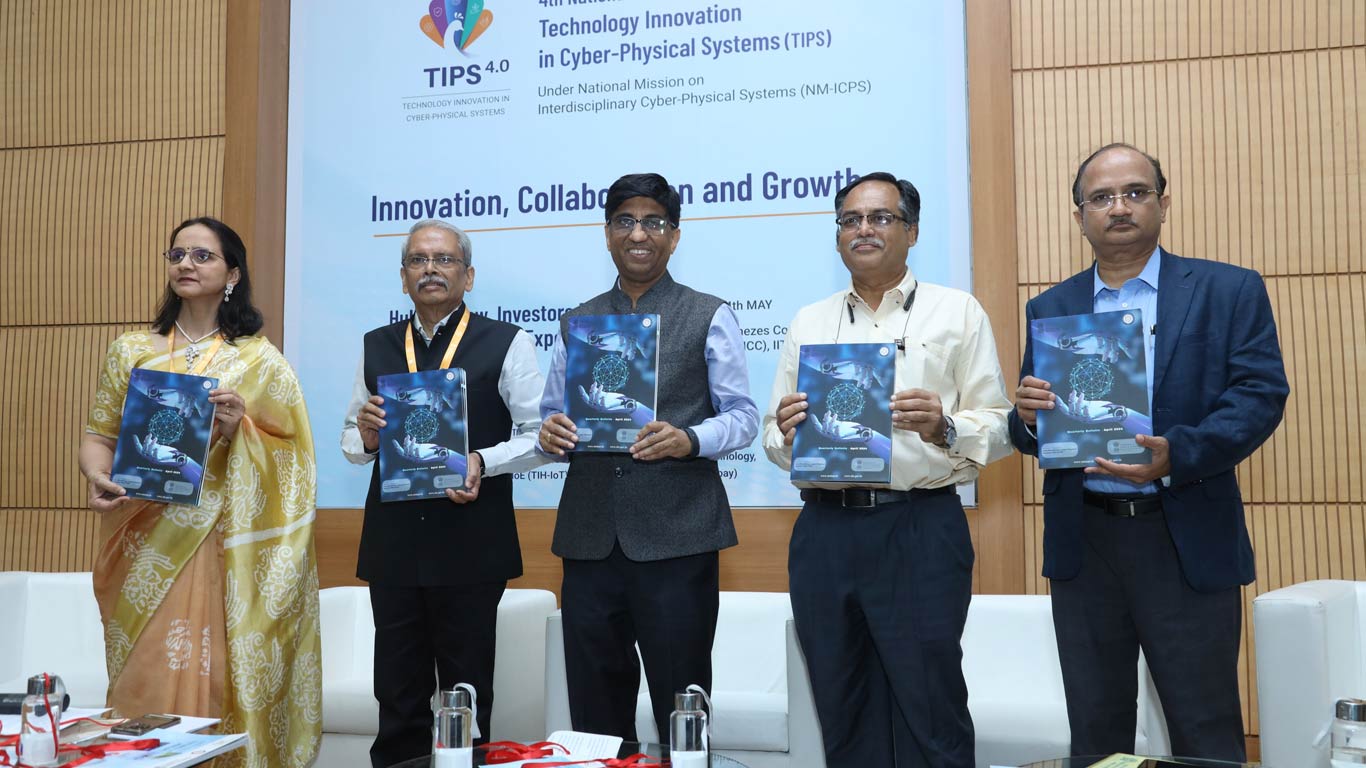Key Highlights for industries from MHA Guidelines on Lockdown 2.0
Updated: Apr 15, 2020 11:38:45am

New Delhi, Apr 15 (KNN) The Home Ministry today released several guidelines on the measures to be taken by Ministries/ Departments of Government of India, State/ UT Governments and State/ UT authorities for containment of COVID-19 in the country.
Some of the key highlights from the guidelines are:
Movement, loading/ unloading of goods/ cargo (inter and intra State) is allowed, as under:
(a). All goods traffic will be allowed to ply.
(b). Operations of Railways: Transportation of goods and parcel trains.
(c). Operations of Airports and related facilities for air transport for cargo movement, relief and evacuation.
(d). Operations of Seaports and Inland Container Depots (ICDs) for cargo transport, including authorized custom clearing and forwarding agents.
(e). Operations of Land Ports for cross land border transportation of essential goods, including petroleum products and LPG, food products, medical supplies.
(f). Movement of all trucks and other goods/ carrier vehicles with two drivers and one helper subject to the driver carrying a valid driving license; an empty truck/ vehicle will be allowed to ply after the delivery of goods, or for pick up of goods.
(g). Shops for truck repairs and dhabas on highways, with a stipulated minimum distance as prescribed by the State/ UT authorities.
(h). Movement of staff and contractual labour for operations of railways, airports/ air carriers, seaports/ ships/ vessels, landports and ICDs is allowed on passes being issued by the local authority on the basis of authorizations issued by the respective designated authority of the railways, airports, seaports, landports and ICDs.
Supply of essential goods is allowed, as under:
(a). All facilities in the supply chain of essential goods, whether involved in manufacturing, wholesale or retail of such goods through local stores, large brick and mortar stores or e-Commerce companies should be allowed to operate, ensuring strict social distancing without any restriction on their timing of opening and closure.
(b). Shops (including Kirana and single shops selling essential goods) and carts, including ration shops (under PDS), dealing with food and groceries (for daily use), hygiene items, fruits and vegetables, dairy and milk booths, poultry, meat and fish, animal feed and fodder etc, should be allowed to operate, ensuring strict social distancing without any restriction on their timing of opening and closure.
(c). District authorities may encourage and facilitate home delivery to minimize the movement of individuals outside their homes.
Commercial and private establishments, as listed below, will be allowed to operate:
(a). Print and electronic media including broadcasting, DTH and cable services.
(b). IT and IT enabled Services, with upto 50% strength. iii. Data and call centres for Government activities only.
(c). Government approved Common Service Centres (CSCs) at Gram Panchayat
(d). E-commerce companies. Vehicles used by e-commerce operators will be allowed to ply with necessary permissions.
(e). Courier services.
(f). Cold storage and warehousing services, including at ports, airports, railway stations, container Depots, individual units and other links in the logistics chain.
(g). Private security services and facilities management services for maintenance and upkeep of office and residential complexes.
(h). Hotels, homestays, lodges and motels, which are accommodating tourists and persons stranded due to lockdown, medical and emergency staff, air and sea crew.
(i). Establishments used/ earmarked for quarantine facilities.
(j). Services provided by self-employed persons, e.g., electrician, IT repairs, plumbers, motor mechanics, and carpenters.
Industries/ Industrial Establishments (both Government and private), as listed below, will be allowed to operate:
(a). Industries operating in rural areas, i.e., outside the limits of municipal corporations and municipalities.
(b). Manufacturing and other industrial establishments with access control in Special Economic Zones (SEZs) and Export Oriented Units (EoUs), industrial estates, and industrial townships. These establishments shall make arrangements for stay of workers within their premises as far as possible and/ or adjacent buildings and for implementation of the Standard operating protocol (SOP) as referred to in para 21 (ii) below. The transportation of workers to work place shall be arranged by the employers in dedicated transport by ensuring social distancing.
(c). Manufacturing units of essential goods, including drugs, pharmaceuticals, medical devices, their raw material and intermediates.
(d). Food processing industries in rural areas, i.e., outside the limits of municipal corporations and municipalities.
(e). Production units, which require continuous process, and their supply chain.
(f). Manufacturing of IT hardware.
(g). Coal production, mines and mineral production, their transportation, supply of explosives and activities incidental to mining operations.
(h). Manufacturing units of packaging material.
(i). Jute industries with staggered shifts and social distancing.
(j). Oil and gas exploration/ refinery.
(k). Brick kilns in rural areas i.e., outside the limits of municipal corporations and municipalities.
Construction activities, listed as below, will be allowed to operate:
(a). Construction of roads, irrigation projects, buildings and all kinds of industrial projects, including MSMEs, in rural areas, i.e., outside the limits of municipal corporations and municipalities; and all kinds of projects in industrial estates.
(b). Construction of renewable energy projects.
(c). Continuation of works in construction projects, within the limits of municipal corporations and municipalities, where workers are available on site and no workers are required to be brought in from outside (in situ construction).
The government announced new guidelines for the second phase of the lockdown which will be in place till May 3. The government has allowed select economic activities in identified areas after April 20, 2020.











